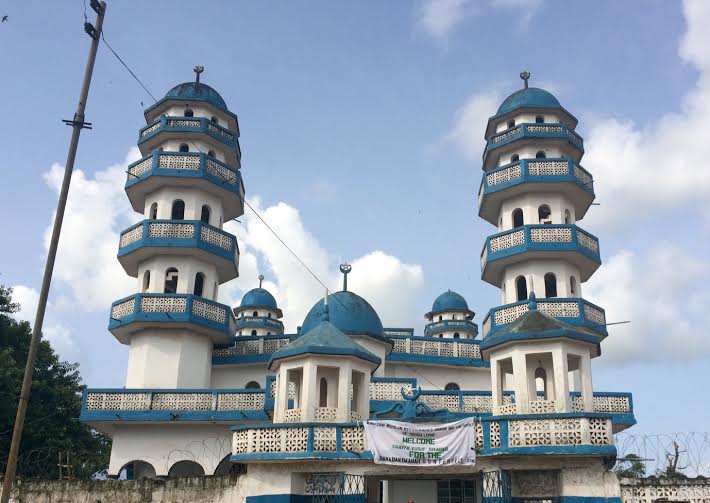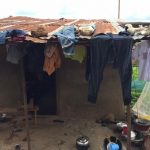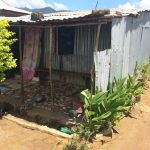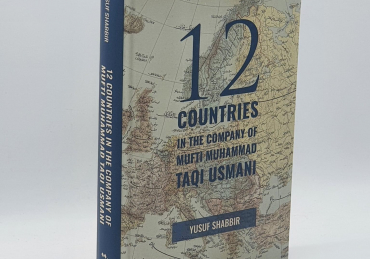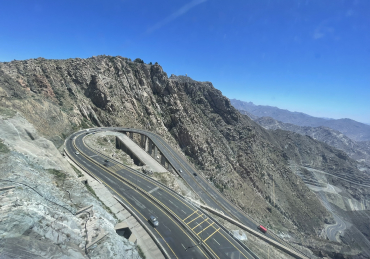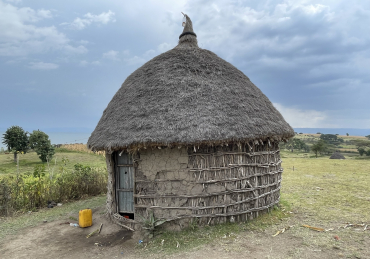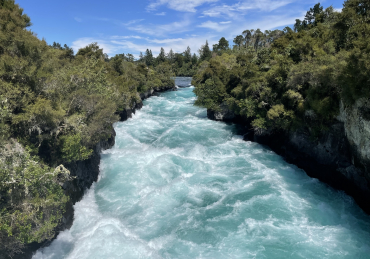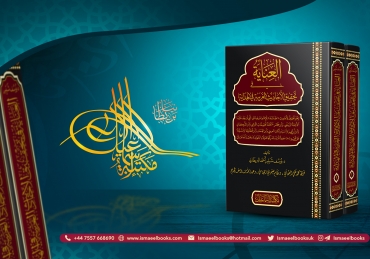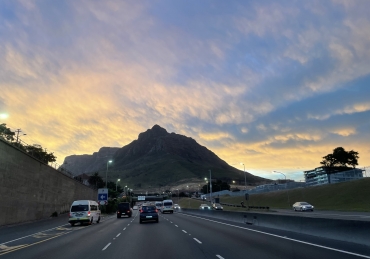8 Days in Sierra Leone
The following is a daily account of Shaykh Yusuf Shabbir’s eight day visit to Sierra Leone in Ramadan 1437/2016. The page will be updated daily.
بسم الله الرحمن الرحيم
Day 1 – Saturday 25 June 2016
Sierra Leone is a country in West Africa that is bordered by Guinea on the north, Liberia in the south-east, and the Atlantic Ocean in the south-west. The country is famous for its minerals and diamonds. According to the latest census, the country’s population exceeds seven million of which approximately 75% are Muslims. We have been invited to Sierra Leone to participate in a series of national conferences that have been organised by several Muslim organisations with the support of the government.

We arrive in the early hours of the morning at Freetown International Airport located in Lungi. From here we take a thirty minute boat journey across the rough, choppy waves of the Atlantic Ocean to mainland Freetown avoiding the three hour journey by road. It is apparent that the country’s infrastructure requires improvement and that a large proportion of the population live in sub standard conditions. We are welcomed by our host Honourable Musa Tarawally, a nationally recognised figure who has headed various government ministries over the years.

After resting for a few hours, we arrive at the government run Miatta Conference Centre in Freetown where over 200 leading Imams from all over the country have gathered. This is the main conference during our visit and has been organised by three of the country’s largest Muslim organisations: Supreme Islamic Council, Sierra Leone Muslim Missionaries Union, and the United Council of Imams. This is the first time in the history of this country that a conference of this nature and magnitude has been organised with participation from various organisations. The theme of the conference is Faith and Education, and the roles and responsibilities of scholars and Imams. In line with the local culture, we are received with a jubilant welcome and are requested to deliver a one hour keynote speech. English is widely spoken and understood in the former British colony. The people are extremely hospitable and kind. Other speakers at the conference include Honourable Silvia Blyden, the Minister of Social Welfare, and Honourable Musa Tarawally, the former Minister of Lands and Country Planning.
A striking feature of the country is the religious tolerance that exists. The President His Excellency Dr Ernest Koroma is a Christian and a champion of religious tolerance. Muslims and Christians live in peace and harmony and have the freedom to practice their faith. Inter-religious marriages are also common. The brutal civil war ended in 2002 and the country has experienced substantial economic growth over the last decade.
Muslims have existed in Sierra Leone for more than 1,000 years. Today, there are more than 4,000 mosques in the country and most Muslims follow the Mālikī school of thought. Unlike the UK, we are surprised to learn that there is no established institute of Islamic learning or seminary in the entire country where people can train and graduate as scholars. As a result, there is a substantial gap in the leadership of the Muslim community especially at grassroots level. Approximately 5% of Imams have trained in the Middle East but the vast majority have not had access to formal Islamic education, primarily due to lack of resources and limited funding. An initiative to establish a seminary is necessary to protect the faith and provide leadership to the people. We are pleased to learn about the religiosity of the people. Almost all the people fast in the month of Ramaḍān and the mosques are full.
Later in the day, we complete our fast and partake in a Sierra Leonean Ifṭār meal. The temperature is 25 to 30 degrees and it is raining heavily.
Yusuf Shabbir
Freetown, Sierra Leone
Day 2 – Sunday 26 June 2016
Four Hour Tahajjud Ṣalāh
Following yesterday’s busy schedule, we decide to rest for most of the day. Later in the afternoon, we have several discussions with some of the country’s leading figures regarding the living conditions of the people and the way in which external philanthropists and business leaders can capitalise on the multi-sector investment opportunities in the country. Generally, African countries are associated with fears of insecurity, corruption and kidnapping. However Sierra Leone is a very safe country where a person can walk around at night without fear. Crime levels are relatively low and the people are very welcoming and friendly. The country has huge economic potential. From an altruistic perspective, investment in this region creates employment opportunities for the local people.
Later in the evening, we perform Tarāwīḥ Ṣalāh at the Juba Mosque, also known as the mosque of the former President. Across Sierra Leone, the Muslims perform eight or ten Rakʿah of Tarāwīḥ Ṣalāh every night in Ramaḍān and complete the Qurʾān on 29 Ramaḍān. We are pleased to learn that 95% of Muslims perform Tarāwīḥ Ṣalāh. The speed of the recitation is on average similar to that of Saudi Arabia and all mosques have facilities for women.
During the last ten days of Ramaḍān, all 4,000 mosques across the country organise congregational Tahajjud Ṣalāh followed by Witr Ṣalāh. The vast majority of the mosques complete a second recitation of the Qurʾān in Tahajjud Ṣalāh and the number of Rakʿah varies between eight and twelve. Tahajjud Ṣalāh is performed between midnight and 4am for three to four hours. This affirms that congregational Tahajjud Ṣalāh in the month of Ramaḍān is an established practice according to the Mālikī scholars as outlined on this link.
We are requested by a local mosque in Freetown by the name of Masjid Ṣaḥābah to lead Tahajjud Salah. Today, they plan to recite four Juzʾ. The local Imam begins and recites one Juzʾ in two Rakʿah taking nearly an hour. To our amazement, the mosque is full of men and women, young and old, who stand throughout the night. We are informed that 70% of people in Sierra Leone attend Tahajjud Ṣalāh and perform Qiyām for several hours. This reminded us of the practice of the Prophet (peace be upon him) and the companions (may Allah be pleased with them) who would perform long Qiyām. The local Imam requests me to recite two Juzʾ and share some advice to the congregation. The people are extremely appreciative and eager to learn about Islam. Herein is a lesson for those of us who are privileged that we reflect on the lives of such disadvantaged people; how they spend their nights worshiping Allah and their days fasting and working hard to earn a living.
Yusuf Shabbir
Freetown, Sierra Leone
Day 3 – Monday 27 June 2016
Visit to Waterloo
We begin the day by visiting Waterloo, an area in the outskirts of Eastern Freetown. The drive from Western Freetown to Waterloo takes an hour. Waterloo vividly illustrates the poverty in Sierra Leone which affects 90% of the local inhabitants. Many live in mud houses whilst those slightly more privileged live in structures enveloped with metal sheets.
In Waterloo, we are welcomed by the country representative of Aid 4 Ummah, a UK based charity that has recently started to deliver a range of programmes in this region under the leadership of Cllr Salim Mulla. They include rice distribution, Eid gifts, water wells, supporting orphans and building mosques. We visit the recently constructed Masjid Rahmah which already caters for five hundred people and there are plans to start education classes soon. The starting price for a Masjid, we are informed, is £6,000.

We are also fortunate enough to visit the Hajjah Maryam orphanage that is home to 116 young orphans. The orphans are lined up outside to greet and welcome us in Arabic and English. Through the generous donations of some family members, we decide to support these orphans with Eid Gifts enabling them to rejoice. It is difficult to imagine how they cope without their fathers and in some cases without both their parents.
After spending some time in Waterloo, we return to Freetown. During the return trip, we come across a place of worship of the Aḥmadī (Qādiyānī) community that resembles a mosque. The Aḥmadī community has a strong presence across the country with a network of schools and places of worship.
Later in the evening we meet with the heads of the three main Muslim organisations of Sierra Leone. An interesting discussion takes place regarding the challenges they face. The presence of Muslim NGOs is limited in the country and internal funding is also limited. Despite the population of Muslims exceeding 75%, the number of Muslim schools can be counted on fingers. Additionally, there is no organised Maktab (supplementary school) system in the way that it is embedded into the Muslim community in the UK and elsewhere. Thus, the majority of children do not have access to a systematic programme of religious education. This is a huge gap that needs to be addressed with the support of educational experts and NGOs. We realised how grateful we need to be to Allah and to our elders who made huge sacrifices and embedded the Maktab system across our communities.
We conclude the night once again by leading Tahajjud Ṣalāh in Masjid Juba, which is attended by many young people. Some advice is also shared with the congregation.
Yusuf Shabbir
Freetown, Sierra Leone
Day 4 – Tuesday 28 June 2016
“Necessity is the mother of innovation”
We begin the day in Eastern Freetown by visiting a vibrant local Youth Centre and Masjid by the name of Bayt al-Sabireen, which translates as ‘the house of those who have patience’. To our amazement, the mosque stands on wood enclosed by tin sheets. There is no carpet.

Despite this, the mosque is full with over three hundred males and females at the time of ʿAṣr Ṣalāh. A large proportion of the attendees are young people. It is a truly inspirational and humbling experience.

After ʿAṣr Ṣalāh, we are requested to share some advice with the congregation. The commentary of Sūrah al-ʿAṣr is rendered with an emphasis on the importance of time, the importance of ʿAṣr Ṣalāh, and the four keys to success: faith, good actions, propagation of the truth and inculcating the quality of Ṣabr and patience.
Later at night, we visit Masjid Rahmah to lead Tahajjud Ṣalāh and share some advice to the congregation. The mosque is located in Central Freetown and is one of the more established mosques of the city. It was established in 1954 by the Fula tribe, the tribe that migrated from Guinea to Sierra Leone in 1902 and empowered Muslims to practice and propagate their faith. Prior to 1902, this was a challenge and practising Islam publicly was difficult. The Fula tribe transformed the religious landscape of the country and today most Imams in Sierra Leone belong to this tribe. Unlike other tribes, 99% of this tribe are Muslims and they follow the Mālikī school of thought. Once again, we observe that the mosque is full with more than five hundred men and women performing the three hour Tahajjud Ṣalāh. The people are extremely appreciative of our visit.
During the day, we also learnt more about the country and its culture. There is a prevalent maxim that “a woman has no religion”. This is because her religion is the religion of her husband to be. We also learnt about the Ḥalāl meat industry. There are some abattoirs in the country. However, the majority of meat is imported through Lebanese companies. Tomorrow, we begin our journey to different provinces outside of Freetown.
Yusuf Shabbir
Freetown, Sierra Leone
Day 5 – Wednesday 29 June 2016
Visit to Bo, South Sierra Leone
It is an early start this morning as we head towards the second largest city in Sierra Leone, Bo. Bo, also commonly referred to as Bo Town, is the capital of the Southern Province. The region has a larger percentage of Muslims then Freetown and the Western Province. The distance between Freetown and Bo is 150 miles but the journey takes three to four hours. There are no motorways or highways although the single lane roads are in a good condition.
After travelling for four hours through the scenic countryside, passing thousands of mud houses and observing the extent of the rural poverty, we arrive in Bo just after 1pm. Our first stop is a local community radio station where we deliver a short speech and interact with listeners. From here, we head towards the Bo Central Mosque where a Daʿwah conference has been organised. There are 1,000 attendees at the conference and we are requested to deliver the keynote speech, which focuses on the fundamental Islamic creed along with the importance of Taqwā (abstention from all sins) and Tawbah (repentance from all sins). The people listen attentively and honour us with a warm welcome.
Upon the conclusion of programme, we meet with some of the poorest and most disadvantaged members of the community. They include the disabled, the handicapped, the widows and the young orphans. As a result of some funds we had taken from the UK, we distribute bags of rice and some money to these people. Some of the recipients have tears in their eyes.
Later in the night, we visit another mosque Masjid Taqwā to lead Tahajjud Ṣalāh and share some advice.
During the day, we learn that the Ebola crisis last year killed thousands of people and it is a commonly held view that it was a man made disease. By the grace of Almighty Allah, the disease is now under control and the country has been declared Ebola Free by international health organisations. We also learnt that, despite the distance, the country follows Saudi Arabia on all moon sighting matters.
Yusuf Shabbir
Bo, South Sierra Leone
Day 6 – Thursday 30 June 2016
Visit to Kenema, Eastern Province
The day begins with a visit to Madinah Masjid in Bo for Dhuhr Ṣalāh. The mosque is full with over two hundred attendees. A short speech is delivered regarding the ‘Night of Power’.
Later in the afternoon, we head towards the capital of the Eastern Province, Kenema.
The distance between Bo and Kenema is fifty miles and the journey takes over an hour, with a bumpy ride towards the end. On our way, we pass a Jehovah’s Witness Church which we did not expect. In Kenema, we arrive at the beautiful Masjid Nurullah that was built by the local community in 1981.

Several hundred Imams from the Eastern province along with members of the local community are eagerly awaiting us outside the mosque chanting words of welcome. The conference begins with a similar theme to the conference in Freetown held a few days ago. The theme of our keynote speech is focused around the first ḥadīth of Ṣaḥīḥ Muslim, the ḥadīth of Jibrīl (peace be upon him) that covers the fundamentals of our faith.
After the conference, we distribute rice packs and money to some of the most vulnerable members of the community. We return to Bo and rest for the evening. We have thus far covered the Western, Southern and Eastern Provinces. This leaves the Northern Province which is a five to six hour journey to be undertaken after Fajr Ṣalāh in the morning In Shā Allah.
Yusuf Shabbir
Bo, South Sierra Leone
Day 7 – Friday 1 July 2016
Visit to Makeni, Northern Province
It is an early start as we head from Bo in the Southern Province to Makeni, the capital of the Northern Province. The distance between the two cities is 180 miles and the journey takes just over three hours as there is no traffic. We arrive into Makeni just after midday and head towards the Central Mosque. The city is well developed partly because this is this home town of the current President.
The Central Mosque in Makeni is a beautiful historic building that was built in 1947. It is Friday today and over 1,000 people have gathered for Friday prayers and to participate in the conference. We are requested to lead the Friday prayers and deliver the sermon which focuses on the attributes of Almighty Allah and his messenger (peace be upon him). Across the country, there is an obsession of taking photographs and videos and it is no different here.

After the Friday prayers and the conclusion of the conference, we distribute rice packs and money to hundreds of people including the disabled, the poor and the handicapped. It is always sad to observe queues of people lining up for food and assistance because of their inability to make ends meet. We also meet the mayor of the region.
Later in the afternoon, we leave Makeni and return to Freetown, the capital of the country and the Western Province. We arrive just before sunset after travelling for four hours and complete our fast. It has been a tiring but also fruitful three days touring the whole of the country.
Yusuf Shabbir
Freetown, Sierra Leone
Day 8 – 2 July 2016
Visit comes to an end
Today is our final day in Sierra Leone. We meet with our host Honourable Musa Tarawally and with the leaders of the three Muslim organisations who organised our country wide tour. We evaluate the tour and discuss future collaborative programmes. Our assessment based on the visits to different parts of the country is that the greatest need is to further education for the local people. This includes establishing Makātib (supplementary Muslim schools) as well as Muslim schools. This is the greatest need of the country and does not require additional buildings to begin with. The network of 4,000 mosques can be used to achieve this. Currently, the Imams across the country are not remunerated and there is no Maktab system. We request the consortium of organisations to prepare a proposal so that we can share it with NGOs and businessmen in the UK. There is also a need to develop and train Imams and scholars.
During the day, we meet a Lebanese businessman who was born over seventy years ago in Sierra Leone. Interestingly, he also holds British Citizenship as he was born during the British colonial rule. There is a large group of Lebanese families in the country and many are the country’s leading businessmen.
Later in the evening, we are introduced to a Christian woman who shares with us her dream. She explains that she saw people chasing her from an evil place and she was saved by reading the following verse:
إني وجهت وجهي للذي فطر السماوات والأرض حنيفا وما أنا من المشركين
She is of African descent and is not aware of any verses of the Qurʾān. However, she recited this verse to us as she recollected it from the dream and asked us for the interpretation. We explained that this is a verse of the Qurʾān and that the dream is a message from Almighty God that she should believe in the oneness of Almighty Allah in order to be protected from the punishment of the hereafter. By the grace of Almighty Allah, she accepts Islam. It was a remarkable experience for us because most Muslims in the country would be unable to recite this verse from memory.
It is now time to bid farewell to the country. At midnight, we leave Freetown and cross to the International Airport in Lungi via a speedboat. Our flight is at 5am and this is the only flight in the morning. Despite being the sole airport in the country, there are only three to six daily flights. This reflects the socio-economic position of the country. Interestingly, we also learned during our visit that there are no fast food chains such as KFC or Pizza Hut in the country. At the Airport, due to the risk of Ebola, all passengers are screened and their temperatures checked twice. This was a memorable trip and we thank Almighty Allah and our hosts for making it fruitful and successful.
Yusuf Shabbir
Freetown International Airport, Lungi, Sierra Leone

